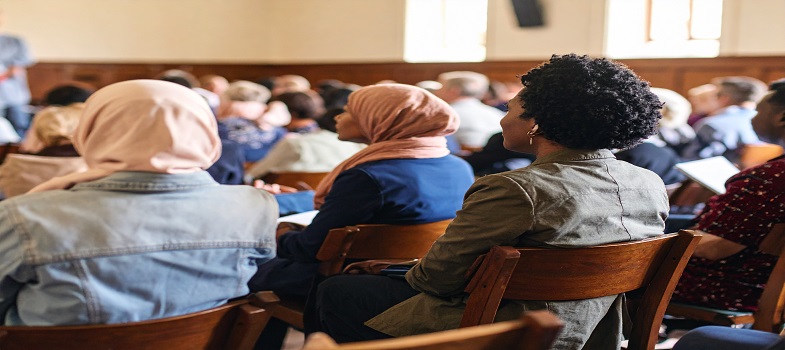Scenario: Speaking about voting rights
Speaking about voting rights with Latin Americans in London
This scenario is based on CLAUK’s Democracy & Participation campaign (2023–2024)

Brief description of the problem
Lucía, a 35-year-old Ecuadorian woman with settled status and an EU passport, has lived in London for over a decade but has never voted. She’s unsure if she’s eligible, what ID is required, or whether her vote really matters. With changes under the Elections Act 2022, she’s even more confused — and no one in her immediate circle seems to know what the new rules mean either.
Scenario objective
To explore how to raise awareness about voting rights and empower community members like Lucía to register, understand voter ID rules, and feel confident participating in local elections — which directly affect her and her community.
Key issues to explore
- Lack of awareness of who is eligible to vote, particularly for EU nationals in local elections.
- Confusion over voter ID rules and the impact of the Elections Act 2022.
- Language barriers and lack of culturally appropriate information.
- Low levels of trust or confidence in political institutions.
- The importance of local government and decisions it makes on education, housing, and public services.
- The role of community-led outreach in building trust and participation.
Actors in the scenario
- Lucía – A long-time resident with settled status and an EU passport, eligible to vote locally.
- CLAUK Outreach Worker – Provides guidance in Spanish on voter eligibility and ID requirements.
- Local Community Centre – Hosts civic engagement events and supports registration.
- Neighbour or Family Member – A peer who influences Lucía’s views.
- Local Councillor – Can be contacted by residents to raise concerns or push for change.
Stage 1: Recognising the issue
Lucía sees a flyer in Spanish in her local shop about needing ID to vote. She had no idea she could vote as a non-British citizen. Talking with friends, she realises many others are equally unsure. The system feels confusing, and she wonders if it’s even worth it.
Stage 2: Seeking information and support
At a Latin American festival, Lucía attends a CLAUK talk in Spanish. She learns that as an EU citizen who arrived in the UK before 1 January 2021, she has retained her right to vote in local and mayoral elections, though not in general elections.
She’s reassured by the speaker, who explains that local elections matter just as much — councils decide on schools, libraries, housing, parks, and social services. She also learns what ID she needs and how to get a free voter ID if necessary.
Stage 3: Taking action
Lucía registers to vote with help from a CLAUK staff member. She takes extra materials to share with her aunt and cousin. She joins a WhatsApp group where reminders and voter tips are shared before the next local election.
Stage 4: Building collective power
Lucía votes in her first local election and feels proud to have had a say in her community. A few weeks later, she speaks with other parents at her daughter’s school about overcrowded classes and lack of resources. She decides to act:
- She writes to her local councillor, describing the education challenges in her area.
- She organises a small meeting with other parents to gather their concerns.
- She starts to understand that voting was just the beginning — she can use her voice in other ways too.
Key takeaway
This scenario shows how trusted, culturally aware outreach can help someone move from confusion to confident action.
For many migrants, local elections are their only voting opportunity — and they are powerful, shaping the schools their children attend, the housing they live in, and the services they rely on.
Learn more at CLAUK.org.uk website
